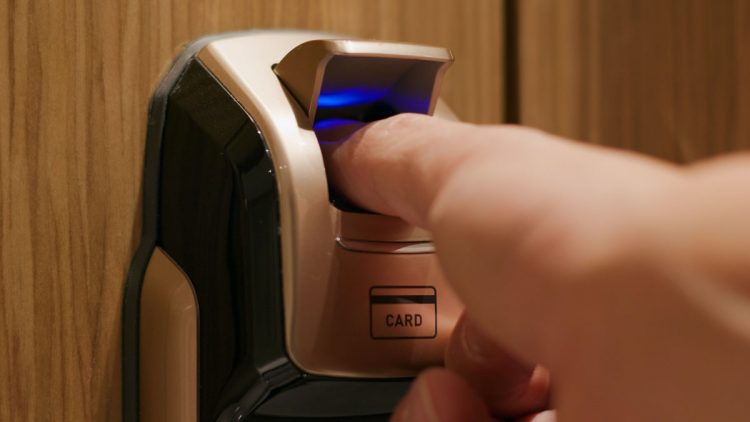Biometric security involves software to automatically recognize individuals based on their behavioral or biological characteristics. The biometric technology presently used mostly in physical access control is fingerprint recognition since it is less costly. Among 2-D fingerprint sensors, multi-spectral sensors are usually a better option over an optical sensor. They’re somewhat more costly but provide higher accuracy and more reliable execution.
Other identifiers used comprise of finger/palm veins, faces and irises. For higher-security settings, iris recognition offers the best accuracy, followed by palm vein identification. Many biometric security systems confirm identities using one or more recognition technologies, whereas others don’t confirm identities at all to keep expenses down.
What Benefits Do Biometric Security Systems Provide?
A biometric system reinforces security
One of the primary benefits of biometric security devices is that they can help to reinforce your safeguarding. It’s a lot harder, for instance, to duplicate or steal fingerprints than access cards.
In circumstances in which you require increased security, biometrics can also be used for multi-factor verification. After an individual presents their badge, for instance, they then are required to present their fingerprint to confirm that they are who they say they are. This method is more secure than using PIN number for verification as that can easily be given to other individuals.
A biometric system increases convenience
These systems can also provide users with more convenience. It’s easy to fail to remember a keycard or key, but you’ll always have your biometrics with you. And when the identifier allows hands-free or long-distance verification, the convenience levels increase further – you might be permitted to get into your building just by having your face scanned as you go through its entrance.
What Are The Downsides To Biometric Security Systems?
Although biometric security systems provide a lot of benefits, there are still some concerns and even possible risks to think about.
Accuracy
Even though the possibility of identifying individuals through biometric systems is high, 100% accuracy isn’t certain. Every biometric recognition technology has their own false acceptance ratio and false rejection ratio, and factors like sunlight and how clean the sensors are can impact accuracy.
Privacy
Because biometrics are classes as sensitive personal data through the European General Data Protection Regulation (GDPR), it’s vital to use and store biometric information in accordance with local provisions. In a lot of countries, for instance, you’re not permitted to keep any biometric data in a centralized database.
Enrollment issues
Factors like dry fingers, indistinct fingerprints, eye diseases or considerably dark irises means that a small amount of individuals are unable to get enrolled using some biometric recognition technologies.
Fraudulent use
Displaying a photocopy of a fingerprint or face can deceive some biometric systems and produces opportunities of security breaches. In many biometric security solutions, you can add liveness detection as additional functionality. This verifies that the part of the body displayed is from a living individual that is at the sensor then and there.
A little inconvenience
Users are required to be physically present for enrollment using biometric identifiers, while a keycard or PIN can be prepared beforehand. Biometric security systems are usually slower to use too, in which can be an issue if a large number of individuals need access within a specific period.
GDPR compliance
In many countries, to comply with local privacy provisions, biometric templates are required to be stored on access cards instead of a separate database. The benefit of this is that each individual owns and possesses their own biometric template, and say their card gets lost or stolen, only they are impacted. The drawback is that biometrics may only be used for confirmation as identification is still carried out by the access card. Additionally, templates stored on cards usually have a low resolution, making comparing attributes more challenging.
C&I Show Security Systems Offers Biometric Access Control Systems in Phoenix, AZ
C&I Show Security Systems is a GSA Contract Holder providing ADA Power Operations throughout the Phoenix, Arizona valley. Click here to see a full list of biometric access control systems we offer.






